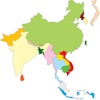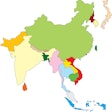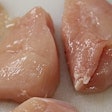Substantially lower-than-expected yields from harvests in Southern Russia, Ukraine and Kazakhstan will considerably reduce exportable surpluses from these countries and drive commodity prices even higher, according to Offre & Demande Agricole UK Ltd., a European provider of independent grain market intelligence services to the farming and agri-food industry.
In the south of Russia, the country’s largest production area, the wheat harvest is nearly 80 percent complete, but yields are 25 percent to 30 percent lower than in 2011. In Ukraine, where weather conditions have been terrible throughout the growing season, expectations are that production will be approximately 40 percent to 50 percent lower than in 2011, according to Offre. “In recent weeks most commentators have been focusing on the U.S. Department of Agriculture’s downgrading of estimates for world stocks of wheat, corn and soybeans, but that is only one part of a very complex story,” said Leo von Kameke, market analyst for Offre. “What most people have missed is the dire harvest situation in Eastern Europe, where dramatically lower yields look set to have a serious impact on the exportable surpluses from this region and therefore on wheat prices in Europe."
Russia, Ukraine and Kazakhstan have traditionally accounted for around 25 percent of global wheat exports, but this is likely to drop to less than 15 percent during 2012. "With Russia’s exportable tonnage likely to fall by over 50 percent, many people will be comparing the situation to that which we witnessed in 2010, and this has led to fears of another ban on exports," said von Kameke. "Going into 2010, harvest carry-over of stocks from the previous campaign were much higher. Only a few months ago, analysts and market operators were hoping that increased wheat and corn production would replenish world stocks to more comfortable levels. However, ending stocks are now being estimated at 315 metric tons, a reduction of some 50 metric tons (15 percent) in the last two months alone, which is expected to further support prices."
Offre is recommending that farmers who produce grain keep a close eye on the markets and take the opportunity to lock into higher prices when they are at levels which give them an acceptable margin.

















